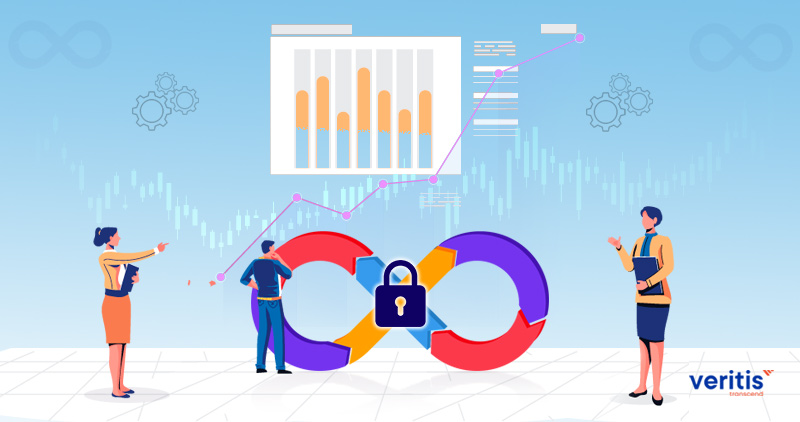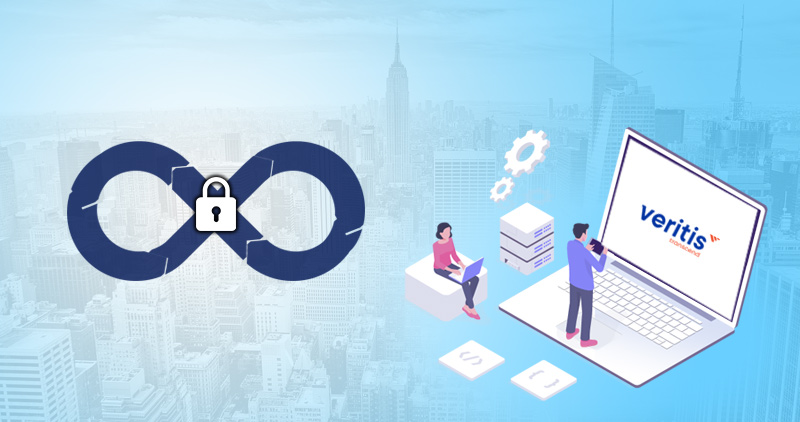
DevOps is significantly transforming the way IT organizations do business. Amidst this cultural shift, IT leaders realize that traditional approaches for instilling security into products impede organizations from harnessing the full potential of DevOps.
In a growing trend, Fortune 500 companies have started embedding security controls into their DevOps culture, procedures, and tools, an approach popularly known as ‘DevSecOps.’ As DevSecOps gains traction, businesses will likely embed threat modeling, risk assessment, and security automation into DevOps pipelines and toolchains. DevSecOps helps enhance the security and compliance maturity levels of the DevOps pipeline while accelerating product delivery and quality.
As the trend is only just beginning to gain momentum, now is the ideal time to explore DevSecOps opportunities and gain a competitive edge.
Here are some of the vital statistics that vindicate the need to embrace the DevSecOps mindset:
14 Statistics that Reveal the Opportunities and Challenges of DevSecOps

1) The DevSecOps market is projected to reach USD 15.9 billion by 2027, growing at a robust CAGR of 30.24%, fueled by increased adoption across industries in 2025.
2) In 2025, 50% of apps at organizations without DevSecOps remain vulnerable, compared to only 22% at companies with a mature DevSecOps approach, highlighting its critical importance.
3) By 2025, it’s estimated that 95% of software development projects will leverage DevSecOps practices, continuing the significant growth observed since 2022 (Gartner).
4) In 2025, over 75% of rapid development teams will have fully integrated DevSecOps practices, showing a sharp rise from 20% in 2019.
5) Automated security tools have become essential in 2025, with 80% of enterprise DevSecOps initiatives adopting vulnerability and configuration scanning, up from just 30% in 2019.
6) By 2025, 68% of organizations will have adopted DevSecOps to secure most of their cloud applications, reflecting the growing reliance on cloud-based solutions.
7) In 2025, organizations with fully integrated security practices address vulnerabilities within a day (45%), compared to only 25% with low integration levels.
8) Despite DevSecOps’ advancements, 71% of CISOs in 2025 report that stakeholders still see security as a bottleneck to faster market deployment.
9) By 2025, 90% of development teams are expected to have adopted DevSecOps, driven by the growing demand for secure and agile software delivery.
10) Mature DevSecOps organizations resolve flaws 11.5 times faster than their counterparts, ensuring quicker turnaround times and reduced security risks in 2025.
11) In 2025, 84% of organizations still rely on C-suite executives to drive DevSecOps investment decisions, underscoring its strategic importance at the leadership level.
12) 60% of organizations report technical challenges as the primary hurdle to DevSecOps adoption 2025, calling for improved tools and implementation strategies.
13) In 2025, 70% of organizations still lack of sufficient knowledge of DevOps Practices
14) Cloud-enabled companies outperform non-cloud-enabled companies in DevSecOps maturity levels
Are you ready?
Baking security into every phase of the software development lifecycle may initially appear straightforward. However, a successful DevSecOps transformation requires true automation in the security process. One ought to seamlessly integrate the security controls into the DevOps pipeline to avoid undesired hiccups. Moreover, organizations must address the challenge of the security skill gap to embrace DevSecOps.
Useful link: What is DevSecOps Services?
Veritis As Your DevSecOps Consultant

The transformation from DevOps to DevSecOps is a complex journey. At Veritis, we tailor our comprehensive suite of services to each client’s specific needs, based on their current DevOps journey. Our end-to-end DevSecOps consulting services and solutions enable clients to integrate security into the software development phase from build to deployment.
Case Study: DevSecOps for an Energy Services Firm
Veritis worked with a global energy services provider to integrate security into their delivery pipeline and accelerate compliance.
Challenge
- Late manual security reviews caused vulnerabilities and audit delays
- Development, security, and operations teams operated in silos
Solution
- Embedded SAST (SonarQube) and dynamic scans into CI/CD workflows
- Used Ansible-driven Infrastructure as Code for consistent, secure environments
- Unified GitHub, Jira, Artifactory/Nexus, and Docker for seamless Dev-Sec-Ops collaboration
- Delivered “security-by-design” workshops to align cross-functional teams
Outcomes
- Automated security gates removed manual handoffs
- Early vulnerability detection reduced production incidents by over 70%
- Release cadence improved by 50% with on-demand, compliant environments
- Continuous compliance reporting met stringent industry regulations
Read the complete case study: DevSecOps Implementation: Enhancing Security for an Energy Services Firm.
Reach out to us to reap the benefits of DevSecOps before your competition catches the wind of it.
More Articles:
